In our second Mother’s Day interview, Sylvia shares the ‘how’ and ‘why’ of Christian motherhood, and how she’s learned to ‘grow up’ as a Christian mother. She also shares the grief of losing her own mother as a teenager – firstly through disagreements and ultimately in her sudden death. Sylvia then shares how God has helped her to face her grief in motherhood and offers words of comfort to women struggling with a strained mother-daughter relationship this Mother’s Day. We hope her story can be an encouragement to you!
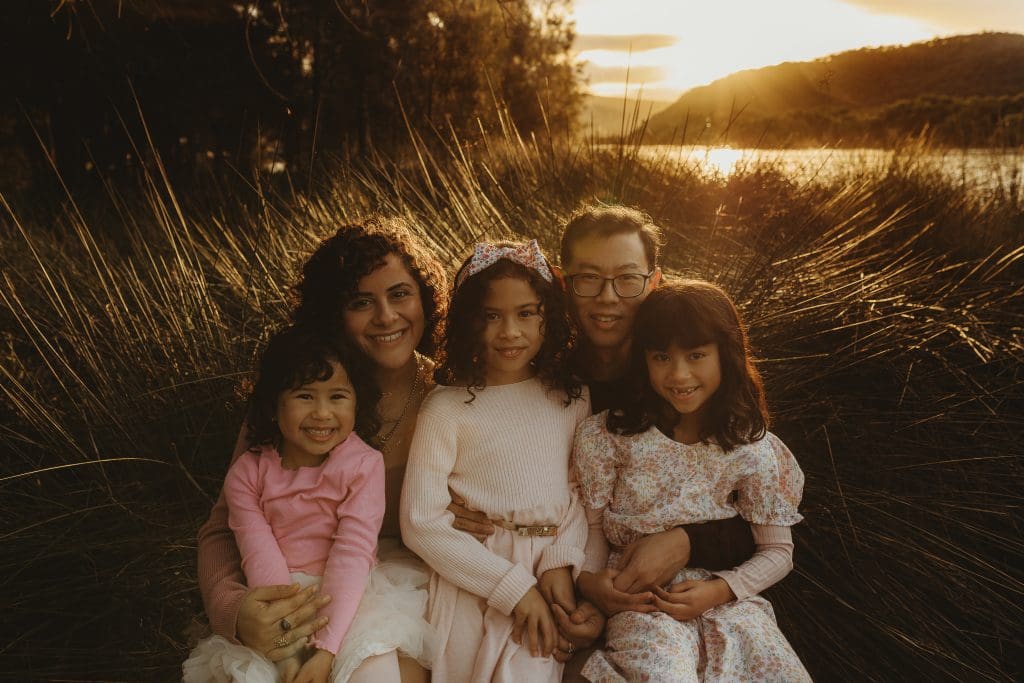
Tell us a bit about yourself!
I’m Sylvia, married to Sylvester, and together we serve at Woy Woy Presbyterian Church, on the Central Coast. I’m a mum to three tenaciously beautiful girls aged 5, 8 and 10. I’m the Associate Women’s Ministry Facilitator for the Presbyterian Church of NSW, with a specific focus on communication and networking; and I spend a couple of days a week caring for my father who has dementia. When I’m not doing that, you can find me writing on Instagram: @siusylviasays, or my very sparse blog, sylviasiu.com.
What does being a Christian Mum mean to you? What makes Christian motherhood distinct?
My non-Christian friends are the most amazing mums: they love and nurture their children and teach them well, growing them up in strength and resilience. So, what makes a Christian Mum stand out? I think there are two things: the ‘how’ and ‘why’.
My ‘how’ is sheer and utter dependence on God. So many times, I’ve quizzed other mothers, read every Google article, pulled out my baby handbooks and then, only when all else has failed, do I cry out to God in desperation. ‘Lord, help me! Help my baby swallow! Help my child sleep! Give me patience!’ I don’t know why I come to Jesus as the last resort when He is so obviously the only One who can give me everything I need. Part of my spiritual growth journey has been learning to depend on God so fully, so that I’m coming to Him before I’ve exhausted all my other options.
I am also working hard to train my children to depend on God. 1 Corinthians 4 says that ‘the Lord comforts us in all our affliction, so that we may be able to comfort others with the comfort we ourselves have received.’ In the early years of parenting, I fell into the trap of making myself the be-all and end-all of my kid’s lives, and in many ways, that’s been impossible to maintain. So, part of my growing up as a Christian Mum, and their growing up as Christian children, is sharing my testimonies of the comfort, help and guidance God has given me, and leading them to Him for the same things.
My ‘why’ is to do it for Jesus. I respond to God’s kindness to me in Jesus by giving myself over as a living sacrifice – not to my kids, but to the Lord. This is true and proper worship: seeking ways to obey, honour and glorify Him – even as I fold laundry, listen to endless stories about 8-year-old school-girl drama, or cook dinner. It’s all worship.
In the early years of parenting, I fell into the trap of making myself the be-all and end-all of my kid’s lives, and in many ways, that’s been impossible to maintain.
Describe your relationship with your own mother, and how this impacted the news of your first pregnancy and the birth of your first child?
My Mum and I had a great relationship when I was a child. I’m the youngest of five kids, and received an abundance of love and care. She was strict and tough, but I felt her genuinely delight in me. She was complex and imperfect, but her greatest impact on me has been her faithful model of prayer – she would accidentally wake us early in the morning as her impassioned prayers exploded down the hallway.
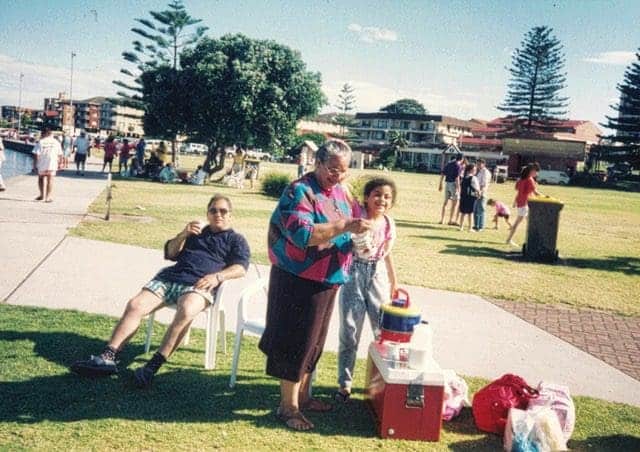
But at the time I was 15, Mum was fighting her second battle with breast cancer. It was just at the time that I was trying to find myself as a young woman, outside of my family dynamic. There was a strong cultural clash – but essentially, I believe she was just trying to contain my childhood and youth. And I fought back, because all I wanted was freedom and independence, and a taste of adulthood. In hindsight, we were both just lashing out in our grief and unfortunately, we lashed out at each other. The mother-daughter bond was fractured, with no hope of recovery when her life – which had miraculously surpassed the medical prognosis by 2 years – suddenly ended. I was 16.
After a couple of years of marriage, Sylvester and I fell pregnant as soon as we started trying. First came the genuine joy and excitement but that was immediately tinged with a deep grief that I just couldn’t articulate, until my mid-wife invited me to a group for “motherless mothers”. I never joined the group – but that simple phrasing brought up all my grief of losing my mother, first through our disagreements and ultimately through her death. I thought I would be able to suppress the grief, but God obviously wanted me to work through that.
My daughter was born 14 days after her due date, which happened to be my Mum’s birthday. Irrationally, it felt like one more thing my Mum was trying to control, as though she was reaching out from the grave, staining my own motherhood experience with the stain of our broken relationship.
I oscillated, through the early years of motherhood, between immense sadness and anger. There were times when I desperately craved being mothered and missed Mum’s affection and warmth. But I was also angry – and that came from all the hurt that lingered. In those seasons, her failings as a mother, rather than her comforts, occupied me.
How has knowing God the Father provided healing to your feelings of loss and grief in motherhood?
After Mum passed, I spoke to her often, and I kept it up through the first few years of motherhood. I told her all the things that she did wrong and all the things I needed that she failed to give. The most frustrating thing was that she had no voice to speak back, argue, or to apologise! So, I started taking the grief and the anger to God. For a while, I was angry at Him too. Just like mother, He didn’t speak back, either. But he listened. I know he listened.
When I was in hospital, waiting to be induced I was scared and I remember thinking, “I just want my Mum.” A kind nurse knocked on the door and told me she was a Christian. She could sense my distress and offered to run me a shower. She guided me in, and then when I came out, she was still waiting in my room. She gently brushed my hair and talked me through what to expect. She told me which birthing suites were the best, and what to ask the midwives for. She told me she’d pray for me, and she left.
I later found out that she had heard, from some concerned church members, that the new minister’s wife was about to give birth and didn’t have a mum to help her. She kept checking the ward to find me, so she could afford me the care that I needed. She showed up at our doorstep right after I was discharged asking if I needed help with breastfeeding. I did! Our daughter didn’t know how to suckle or swallow, and I didn’t know how to feed her. This lovely lady spent hours with me, helping my baby attach, praying for us both, and caring for me.
That was one of the tangible ways that God provided healing for me in loss and grief – affording me moments with other mothering hearts, who have loved and nurtured me in ways I didn’t even know I needed. And He has done that consistently through my motherhood journey. He knows exactly when to apply the soothing balm on my open wounds of grief, and He has done that through the hands and feet of my sister, my parent’s friends, and my (at the time) new church family in Woy Woy.
Hagar calls the Lord, ‘el roi’, “the God who sees me” (Genesis 16:14-15) and throughout my journey of being a motherless mother, God has continued to see me and meet my needs.
Hagar calls the Lord, ‘el roi’, “the God who sees me” and throughout my journey of being a motherless mother, God has continued to see me and meet my needs.
What advice would you give to daughters who have a strained relationship with their mothers this Mother’s Day?
In some ways, it is easier to be a “motherless mother,” than a daughter who has a strained relationship with their own mothers. My Mum and I can’t fight anymore. There is no prospect of further pain, hurt or rejection. When we see each other again, it will be in glory. We’ll finally be in perfect peace, through the One who is our perfect peace.
So, I tread carefully in this space, because I have witnessed several close friends who continue to live out strained relationship with their mothers, and it is not an easy journey to walk. The pain of a broken mother-daughter bond is unique, harsh, filled with grief and unfortunately, all too common.
But this is what I know: that the whole of creation is groaning and in pain (Romans 8:22) – and that includes our relationships. All our groaning, pain, grief and broken relationships is simply evidence of our need for Jesus, and urgency for His return. But I also know that Jesus is in the restoration business. He is doing a new thing in me, and in you – and that is bringing healing through dependence on him.
Strained relationships may not be restored this side of heaven, but God is kind, and He can nurture your wounded inner child by surpassing any good thing your mother could have given. Jesus described himself as a nurturing mother-hen, wanting to gather his children together under his wings (Matthew 23:37), and offering protection and safety through closeness. The Lord is the heart and soul doctor that our wounds need, as he heals the broken hearted and binds up their wounds (Psalm 147:3).
Strained relationships may not be restored this side of heaven, but God is kind, and He can nurture your wounded inner child by surpassing any good thing your mother could have given.
So, to the daughter with a strained relationship, I say look to the Lord. Tell Him all about your Mum and the hopes and griefs you have carried because of her. Ask for His peace. Ask for His strength. Ask for his patience. Ask for healing.
And He will do it, because He is good and able.
Enjoyed this read? Read the rest of our series!
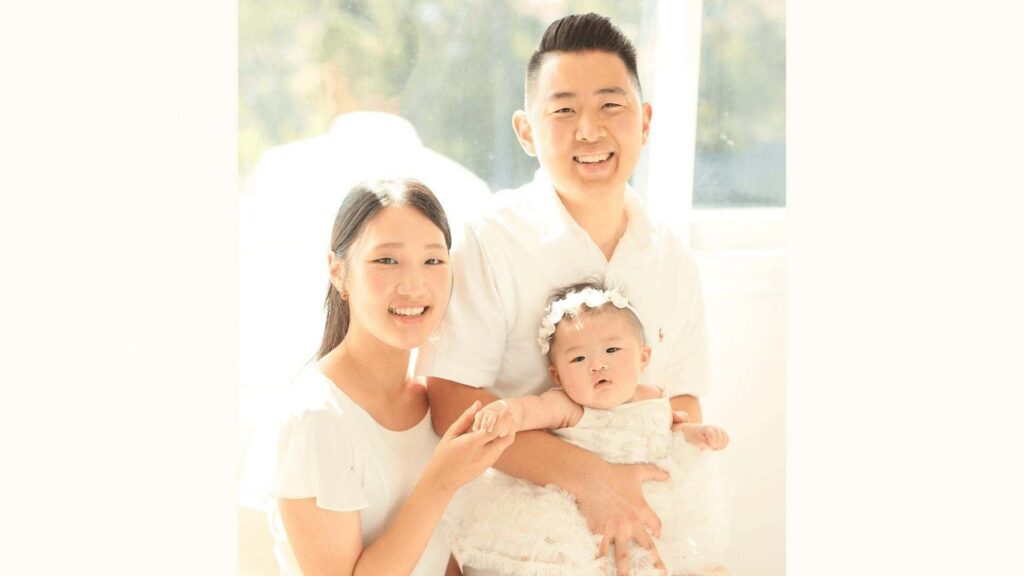
Jane Kang On Relearning Confidence and Contentment in God this Mother’s Day
Jane shares the joys and challenges of being a new mother and how her gospel convictions shapes both her current parenting decisions, and future hopes for her daughter. She also opens up about her struggle with conceiving, and how she relearned to ‘be still’ and find contentment and confidence in God – regardless of whether she bore a child or not.
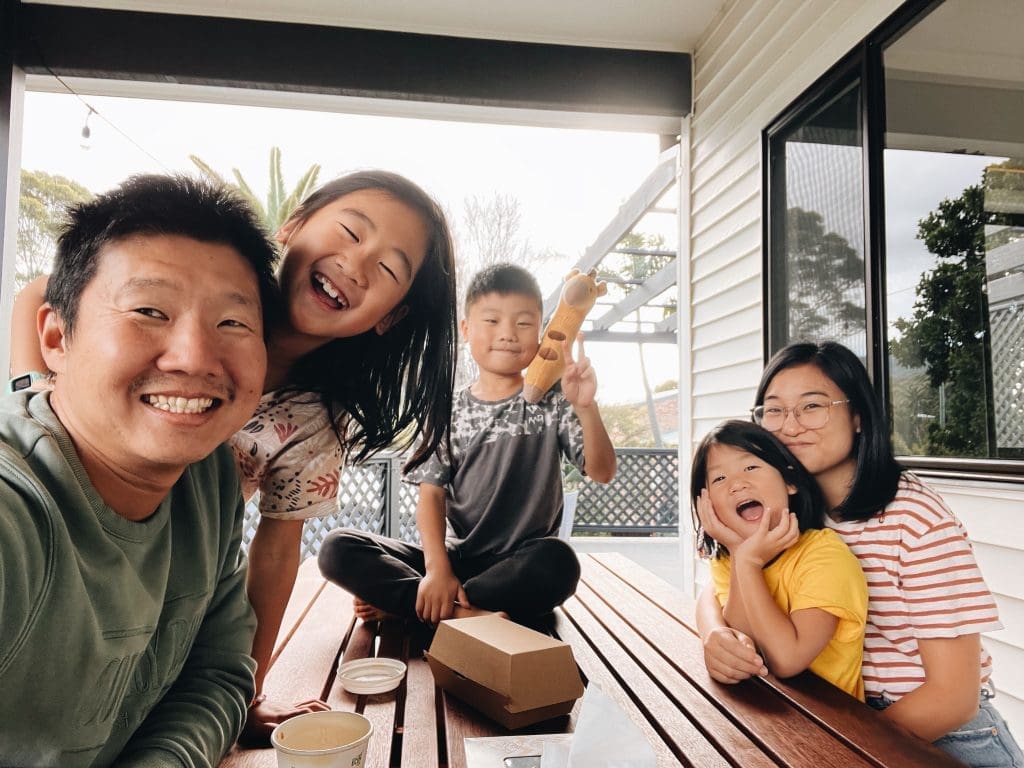
Rebecca Song on the Illusion of Control and Competency in Christian Motherhood
Rebecca shares how motherhood revealed the pride in her heart and ‘completely obliterated’ her illusion of control and competency. She shares the challenges of bringing 3 children under 4 to church – and that her ‘success’ in doing so revealed her impure motives, legalism and self-righteousness. It was only when she confessed her sin and limitations as a mother, did she learn to treasure the body of Christ, and see gospel community in all its richness and beauty.
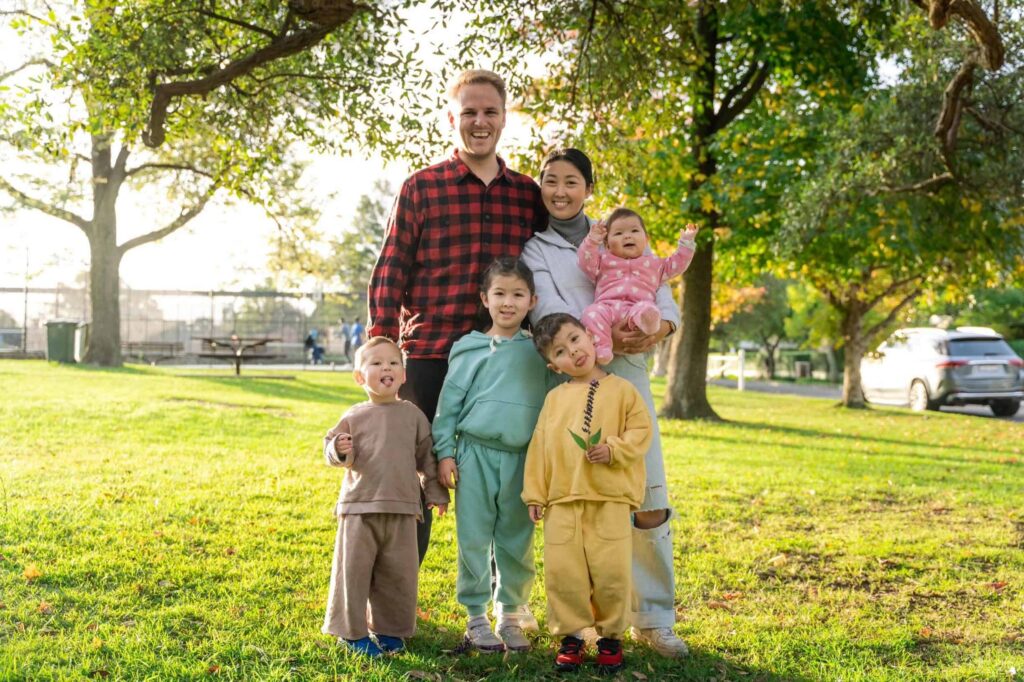
Esther Sylvester on the Eternal Value of Being ‘Just a Mum’ This Mother’s Day
Esther Sylvester shares how the gospel gives eternal value to the unseen and invisible sacrifices of motherhood. She also opens up about the ‘exposing’ work of motherhood in bringing out the best and worst in her character, and how God has brought healing to her childhood insecurities, triggers, and Mum guilt. Finally, she shares what discipleship looks like in her imperfect home, and why being a ‘perfect Mum’ is not ultimately the end goal of Christian parenting and discipleship.

